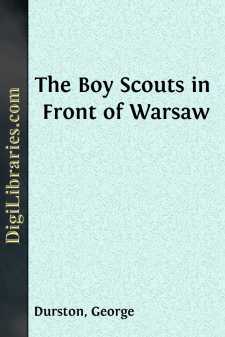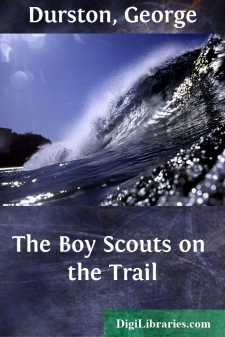Categories
- Antiques & Collectibles 13
- Architecture 36
- Art 48
- Bibles 22
- Biography & Autobiography 813
- Body, Mind & Spirit 142
- Business & Economics 28
- Children's Books 17
- Children's Fiction 14
- Computers 4
- Cooking 94
- Crafts & Hobbies 4
- Drama 346
- Education 46
- Family & Relationships 57
- Fiction 11829
- Games 19
- Gardening 17
- Health & Fitness 34
- History 1377
- House & Home 1
- Humor 147
- Juvenile Fiction 1873
- Juvenile Nonfiction 202
- Language Arts & Disciplines 88
- Law 16
- Literary Collections 686
- Literary Criticism 179
- Mathematics 13
- Medical 41
- Music 40
- Nature 179
- Non-Classifiable 1768
- Performing Arts 7
- Periodicals 1453
- Philosophy 64
- Photography 2
- Poetry 896
- Political Science 203
- Psychology 42
- Reference 154
- Religion 513
- Science 126
- Self-Help 84
- Social Science 81
- Sports & Recreation 34
- Study Aids 3
- Technology & Engineering 59
- Transportation 23
- Travel 463
- True Crime 29
The Boy Scouts in Front of Warsaw
by: George Durston
Description:
Excerpt
Chapter I
The Disappearance
It was the fifth of August. Warsaw the brilliant, Warsaw the Beautiful, the best beloved of her adoring people, had fallen. Torn by bombs, wrecked by great shells, devastated by hordes of alien invaders, she lay in ruins.
Her people, despairing, seemed for the greater part to have vanished in the two days since the fatal third of August when the city was taken.
Many of the wealthiest of her citizens had taken refuge in the lower part of the city, leaving their magnificent palaces and residences situated in the newer part to the flood of invading soldiers, who went with unerring directness to the parts containing the greatest comfort and luxury.
Warsaw is built in the midst of a beautiful plain mostly on the left bank of the river Vistula. All the main part of the city lies close to the river, and the streets are so twisted and crooked that it is almost impossible to picture them. They wriggle here and there like snakes of streets. The houses, of course, are very old, and with their heavy barred doors and solid shutters, look very strange and inhospitable.
People, in a way, become like their surroundings. Here in these twisted, narrow streets are to be found the narrow, twisted souls of the worst element in Poland; but the worst of them love their country as perhaps no other people do. To the last man and to the frailest woman, they are loyal to Poland. For them, it is Poland first, last and always.
In these low and twisted streets, the devastation was greatest and the people had scurried like rats to cover. A week before they had swarmed the streets and crowded the buildings. Now by some miracle they had gone, utterly disappeared. The houses were deserted, the streets empty. The destruction had been greatest in these crowded places, but many of the beautiful public buildings and state departments in the new part were also in ruins, as well as a number of matchless palaces.
The people from the upper part of the city who had taken refuge in the holes along the river front, were for the most part a strange appearing lot. Some of them carried great bundles which they guarded with jealous care. Others, empty handed, sat and shivered through the summer night-chills that blew from the river. Scores of little children clung to their mother's hands, or wandered trembling and screaming from group to group, seeking their own people.
There was a general gathering of types. Nobles mixed with the poorest, meanest and most criminal classes, and mingled with their common sorrow. For the most part a dumbness, a silence prevailed. The shock of the national disaster had bereft the people of their powers of expression.
Since 1770, Poland had been torn and racked by foes on every hand. Prussia, Austria and Russia envied her wealth, courage, and her fertile plains. Little by little her enemies had pressed across her shrinking borders, wet with the blood of her patriot sons. Little by little she had lost her cherished land until the day of doom August third, 1915....




